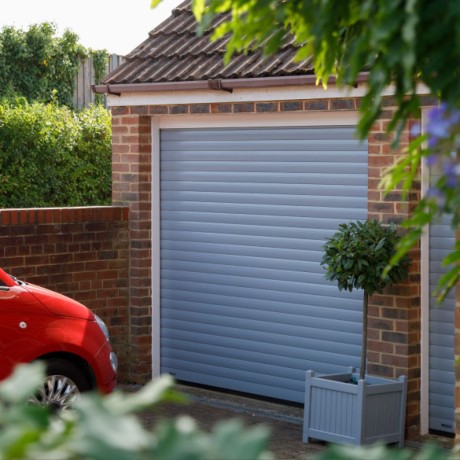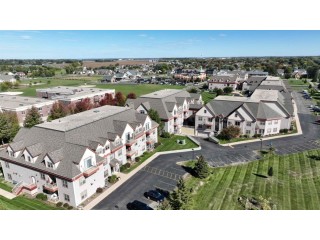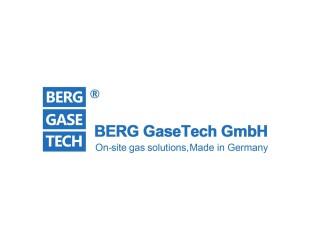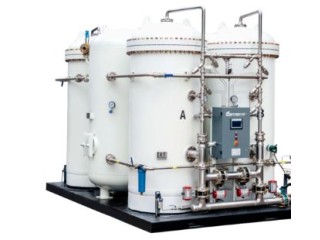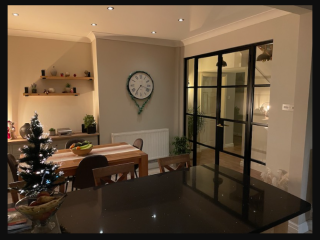Access Garage Doors | Industrial Doors vs. Commercial Doors Professional
5 days ago - Services - Greenwich - 284 viewsWhen it comes to choosing the right door for your business or facility, understanding the difference between industrial and commercial doors is crucial. While they may seem similar at first glance, these two categories are designed for distinct purposes and come with unique features tailored to specific environments.
In this blog, we’ll explore the key differences between industrial and commercial doors, their features, and the situations where each type is best suited.
What Are Industrial Doors?
Industrial doors are heavy-duty doors specifically designed for demanding environments, such as warehouses, factories, and logistics centers. These doors are built to endure harsh conditions, frequent use, and heavy loads.
Features of Industrial Doors
- Durability: Constructed with materials like galvanized steel, aluminum, or reinforced PVC, industrial doors can withstand wear and tear.
- High-Security Measures: Industrial doors often include advanced locking systems, anti-tamper features, and resistance to impact.
- Large Dimensions: Designed to accommodate larger vehicles like trucks and forklifts, industrial doors are typically larger in size.
- Automation: Many industrial doors are automated for quick and efficient operation, enhancing workflow in high-traffic areas.
- Weather Resistance: Built to withstand extreme weather conditions, industrial doors often feature insulation to maintain internal temperatures.
What Are Commercial Doors?
Commercial doors are designed for businesses that serve customers directly, such as retail stores, restaurants, and office buildings. They prioritize aesthetics, usability, and light-duty performance.
Features of Commercial Doors
- Aesthetic Appeal: Available in a variety of designs and finishes to complement the business’s branding.
- Ease of Use: Lightweight and easy to operate, making them suitable for frequent, low-intensity use.
- Security Features: While secure, commercial doors may not have the heavy-duty locking mechanisms found in industrial doors.
- Moderate Dimensions: These doors are typically smaller, designed for pedestrian access or light vehicle entry.
- Cost-Effective: Generally less expensive than industrial doors, given their lighter construction and simpler functionality.
Key Differences Between Industrial and Commercial Doors
| Feature | Industrial Doors | Commercial Doors |
|---|---|---|
| Material | Heavy-duty materials like galvanized steel, aluminum, or PVC. | Lightweight materials like glass, wood, or aluminum. |
| Size | Larger dimensions to accommodate heavy vehicles and machinery. | Smaller sizes suitable for pedestrian and light vehicle traffic. |
| Durability | Designed for extreme conditions and heavy usage. | Built for moderate use in customer-facing environments. |
| Security | Advanced locking and anti-tamper features for maximum protection. | Basic security features for general protection. |
| Automation | Frequently automated to streamline operations in high-traffic areas. | Manual or basic automated systems for ease of use. |
| Aesthetics | Focused more on functionality and durability. | Stylish designs to enhance business branding. |
Use Cases for Industrial Doors
- Warehouses and storage facilities.
- Factories and manufacturing units.
- Loading docks and logistics centers.
- Agricultural facilities and barns.
- High-security areas like power plants or data centers.
Examples of Common Industrial Door Types
- Roller shutter doors.
- Sectional overhead doors.
- High-speed doors.
Use Cases for Commercial Doors
- Retail shops and malls.
- Restaurants and cafes.
- Office buildings and corporate spaces.
- Schools and community centers.
- Healthcare facilities like clinics and hospitals.
Examples of Common Commercial Door Types
- Glass storefront doors.
- Hollow metal doors.
- Aluminum entry doors.
Choosing the Right Door for Your Business
The choice between industrial and commercial doors depends on your specific requirements. Here are a few questions to help guide your decision:
What is the primary purpose of the door?
- If you need durability and security, go for industrial doors.
- For style and accessibility, commercial doors are a better fit.
How often will the door be used?
- Industrial doors are ideal for heavy and frequent usage.
- Commercial doors are better suited for lighter, occasional use.
What size do you need?
- Industrial doors are necessary for large openings.
- Commercial doors work well for standard pedestrian or light vehicle access.
What is your budget?
- Industrial doors often require a higher upfront investment but offer long-term durability.
- Commercial doors are more cost-effective for less demanding applications.
Why Choose Access Garage Doors?
At Access Garage Doors, we understand that every business has unique needs. Whether you’re looking for heavy-duty industrial doors or stylish and functional commercial doors, our team can help you find the perfect solution.
Learn more about our offerings, including garage doors Greenwich, and explore how we can enhance the functionality and security of your business.
Conclusion
Industrial and commercial doors serve different purposes, and understanding their distinctions is key to making the right choice for your business. While industrial doors prioritize durability and heavy-duty performance, commercial doors focus on aesthetics and light-duty usability.
For professional guidance and high-quality door solutions, contact Access Garage Doors today. Let us help you find the perfect door to meet your business needs!
